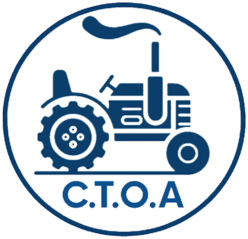Forum Replies Created
-
AuthorPosts
-
That's the only bushing I can think of Bob, and if that one is getting eaten by the gear oil you have more serious problems than just a worn bushing.

Based on what I have read and heard form mechanics, we can pretty much ignore the yellow metal issue on Chinese tractors and small dozers. That applies to synchromesh transmissions and ours aren't. My two favorite Chinese tractor mechanics tell me there isn't any yellow metal in our transmissions. Further, I think that the issue of EP additives being unfriendly for yellow metals is moot now due to improvements in the lubricants. Modern transmissions are highly stressed and need EP additives but are also all synchromesh so they have to be friendly to that.
Disclaimer: I am most assuredly NOT a real mechanic or lubrication specialists! This advice is probably worth exactly what it cost. Your mileage may vary, use at your own risk, don't run with scissors, wear your rubbers. etc.

I use 80W90 gear oil in my 304 Jinma. Seems to work fine and dandy. I don't hardly ever disagree with Tommy, and I don't doubt his experience has been good or he wouldn't recommend the motor oil, but I prefer gear oil for gears as it is formulated to have higher “cling” than motor oil.
Motor oil is generally pumped under positive pressure to lube points while most gear boxes depend on the oil clinging to the gears to be carried to wear points. Thus, I think an oil with high cling factor is called for.
Personally, the only thing I use WD4j0 for is removing paint from my hands. It is a crappy lubricant, equally crappy preservative and truly horrible penetrating oil. It does have really good name recognition though, so it sells a lot.

The stuff attracts dirt like a magnet and then it traps water. Bad idea, in my view. As Tinbender noted, Vaseline is a better rust preventative and is basically a very high-grade cosmoline. It also holds dirt, but the film strength is so much better no water penetrates it.
Yes. The injector pump takes anywhere from 8 to 12 ounces of motor oil. If there is a dipstick, fill it to the line. If no dipstick, look for the tell-tale plug and remove it – fill until it runs out the tell-tale and then cap it. There should be a drain plug at the bottom of the governor side housing somewhere.
Are you sure you had the correct gasket and that the block and head were both spotlessly clean before re-assembly? You didn't use any gasket sealer did you? Did you follow the correct torque sequence and torque to spec in stages?
Tommy,
Are you telling me that I've been wasting my money importing clean creek water for my radiator? You mean I could have been using regular ol' purified water all this time? Good grief – next you'll be telling me that I don't really need to fill the engine with boiling water to help with cold-weather starting in Winter!



If you're looking for something on the order of a Zerk fitting, there isn't one on the throwout bearing. If the bearing is meant to be greased, and many are simply sealed bearings that don't get serviced, there will be a small hole in the side of it somewhere. You use a grease needle on that hole and pump in a couple small squirts of grease with that. You don't want to over-grease it or it will sling grease onto the clutch, which is a bad thing. If you watch closely, you might be able to see a trace of grease begin to extrude out where the shell meets the race – if you do, that's enough grease. If not, stop at two small squirts.
In order to determine if you have one of the grease-able bearings, you'll need to get in there with a rag or cotton swabs and some solvent to clean the outside of the bearing shell to reveal the hole. You'll want a good strong flashlight, too. Once ou find the elusive hole, run a piece of copper or brass wire into it to clear out and hardened grease that might be blocking it.
PTOs that I have seen were all splined on both ends and any shear pin or slip clutch was on the implement between the input shaft and the first gearing or other drive part. I've never seen a PTO shaft that had a smooth end with a shear pin or bolt, though that doesn't mean someone somewhere doesn't use one.
Aha! Yes, that would be called the key. A Woodruff key is half-moon shaped and regular key is usually (though not always) square in cross section. For a square key you can measure the width and depth of the keyway and determine the necessary size of key stock. If a Woodruff key is used, the shaft will have a half-moon shaped slot milled in it instead of a straight, continuous slot. In either case, the sheave, pulley or wheel that goes on the shaft will have a straight slot milled in it that is usually half as deep as it is wide.
-
AuthorPosts
